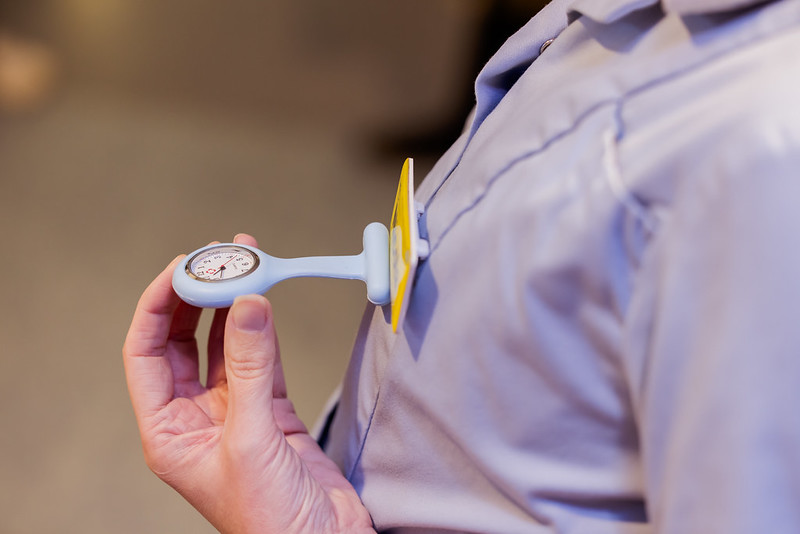Midwives in Scotland are working hundreds of extra hours without pay to keep maternity services running safely. The results of a new poll published today by the Royal College of Midwives (RCM) have laid bare the extent of the problem with nine out of 10 midwives (85%) saying they have worked additional hours for no pay over the course of one week.
Over a third (34%) of midwives told the RCM across just one week in March they had worked between five and ten additional unpaid hours, while almost half (45%) of those who responded worked up to five hours extra hours.
The RCM has described the situation as ‘unsustainable’ and ‘grossly unfair’ particularly as members in Scotland’s pay rise is now overdue.
Commenting, the RCM’s National Officer for Scotland, Emma Currer, said:
“For far too long our members in Scotland have been plugging the gaps when it comes to staffing shortages. It’s unsustainable and, given the current delays with the pay negotiations and implementation of the reduced working week, it’s absolutely demoralising for staff. We’ve long said that Scottish maternity services can’t run on the goodwill of midwives. It’s clear from the results of our poll that without our members working unpaid additional hours week in week out maternity services in Scotland would be so much more worse off. Is this the way the Scottish Government wants to run our maternity services? Furthermore, we are still awaiting a response to the 2024/25 pay claim which is now well overdue, what kind of message does this send to our hard working and dedicated maternity service staff? Women and their babies deserve better and all those working and striving to deliver good quality maternity deserve better. “
The need to ensure midwives and maternity care assistants in Scotland are supported to provide the safest care for women and families has never been greater says the RCM. The Scottish Government needs to make maternity care a priority, from how we train staff to how we retain them.
The RCM says its concerned that safe staffing levels have been flagged by its members in this poll with three quarters (75%) of midwives saying they did not feel their services were safely staffed during those seven days (Monday 4 March to Sunday 10 March).
Emma added:
“Not having the right number of staff undoubtedly impacts the safety and the quality of the care that can be delivered. Our members have told us often of the worry they experience as they struggle to deliver maternity care in the face of staffing shortages. The pressure that comes with that is immense, and too often it’s the reason why midwives decide to leave the profession. In Scotland our members have told us that staffing issues, safety concerns and pay, and conditions are their main reasons for considering leaving the profession. The Government must act now before it’s too late or we will see the same staff retention challenges that the NHS is currently grappling with in England.”
Earlier this year the RCM said that ‘ending the midwifery staffing shortage was possible’ as it published a new guide which also included low cost solutions to improve working conditions for midwives, It was developed for current and future Members of Parliament, setting out solutions to the issues faced by maternity services in Scotland and across the UK.
ENDS
For interview requests and to contact the RCM Media Office call 020 7312 3456, or email media@rcm.org.uk
NOTES TO EDITORS
- RCM poll of all members (midwives and MSWs) in England, Scotland and Wales ran from midday on Monday 11 March 2023 until midnight on Monday 18 March 2024.
- The questions asked were specifically related to RCM members’ experiences at work in the week from Monday 4 to Sunday 10 March 2024 (inclusive).
- The survey had 1,548 responses in total. 96% of respondents described themselves as midwives, and 4% described themselves as maternity support workers (MSWs)/Maternity care assistants (MCAs).
- Full results are available on request – email media@rcm.org.uk
- RCM tells politicians how to fix the midwifery staffing crisis with new pre-election guide
- Invest in maternity services to invest in Scotland’s future, urges RCM
*Please see below for how the RCM calculated the estimate for the number of free hours worked by midwives during the week of the survey.
- The number of extra unpaid hours is calculated using NHS workforce figures to estimate how many midwives fell into each of these categories.
- We took the regional percentage shares of those who worked zero extra unpaid hours; up to five hours; between five and 10 hours; and over 10 hours.
- We used the headcount midwifery workforce figure for this as the respondents were people who worked part-time and full-time.
- The latest workforce data for Scotland was taken from here: NHS Scotland workforce | Turas Data Intelligence
The Royal College of Midwives (RCM) is the only trade union and professional association dedicated to serving midwifery and the whole midwifery team. We provide workplace advice and support, professional and clinical guidance, and information, and learning opportunities with our broad range of events, conferences, and online resources. For more information visit the RCM | A professional organisation and trade union dedicated to serving the whole midwifery team.


